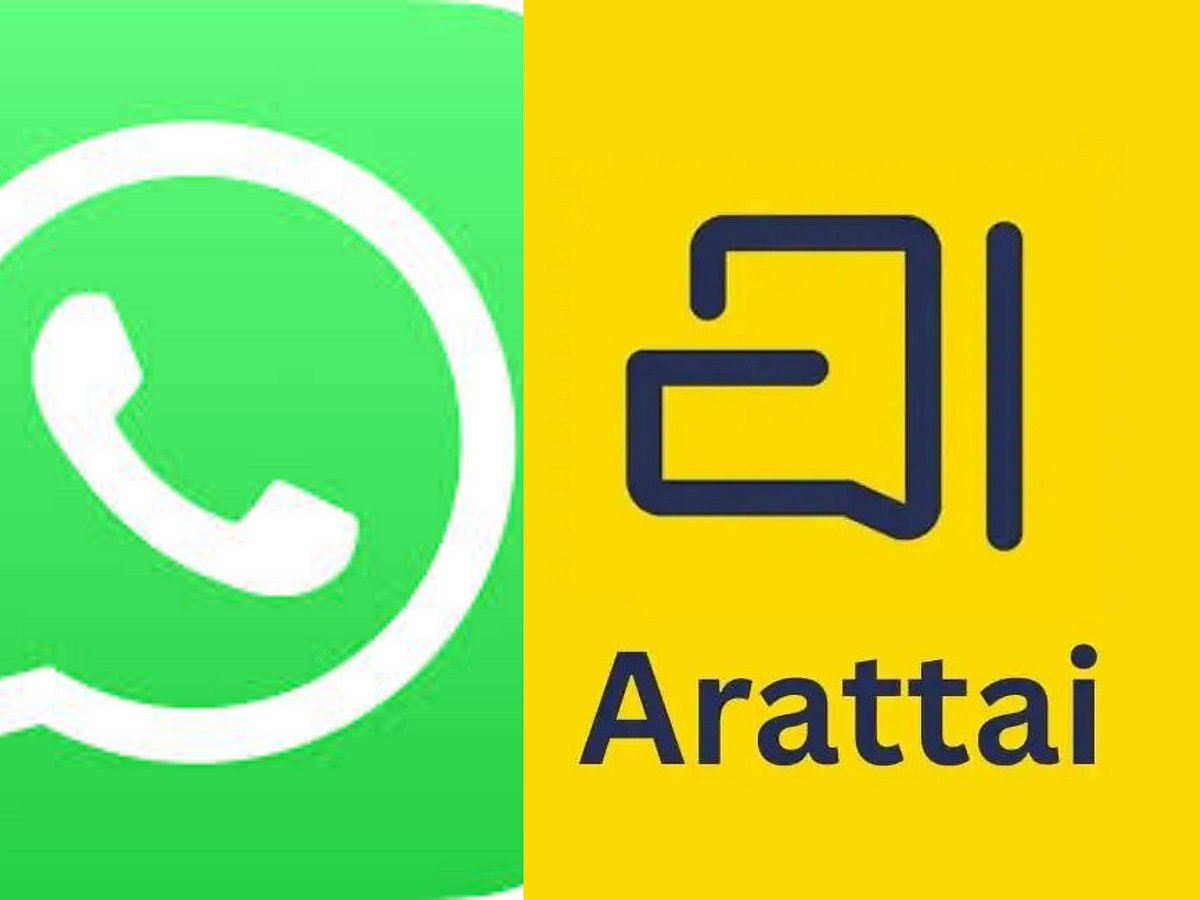WhatsApp vs Arattai: Why India’s new messaging app has suddenly gone viral
WhatsApp rival Arattai tops India charts amid US tariffs, here’s why it’s secure

Dubai: Arattai, a WhatsApp alternative messaging application developed by the Indian tech company Zoho, has recently become a viral sensation in India.
The app, whose name means "casual conversation" or "banter" in the Tamil language, has seen a massive surge in popularity, fuelled by a government-led push for self-reliance and the app's status as a "Made in India" alternative.
What is Arattai?
The Arattai app was quietly soft-launched in 2021 but remained largely unknown until recently. The company did not specify the dates, but claimed seven million downloads in "seven days last week" following its spike in visibility. This explosive growth is viewed by many as a potential challenge to Meta's WhatsApp, which currently dominates the market with over 500 million monthly active users in India.
The app supports group chats of up to 1,000 participants, document and media sharing, and dedicated channels for organized communication, making it a competitor to Meta’s WhatsApp.
Zoho's founder, Sridhar Vembu, noted a "100x increase" in traffic, with daily sign-ups rocketing from 3,000 to 350,000, and even hitting two million sign-ups on a single day in early October.
‘Make in India’ boosts Arattai downloads
The surge in Arattai’s popularity aligns with India’s “Make in India” and self-reliance campaigns, which encourage citizens to embrace homegrown digital products amid global trade and geopolitical shifts.
Several senior ministers — including Dharmendra Pradhan, Piyush Goyal, Ashwini Vaishnaw, and Amit Shah — have endorsed the app as part of the “swadeshi” initiative promoting Indian-made technology.
While Prime Minister Narendra Modi has not officially backed Arattai, his consistent calls for supporting Indian products have bolstered the sentiment. Zoho credits this government push, coupled with viral social media momentum and growing pride in domestic innovation, for the app’s massive spike in downloads.
Will Arattai be available in the UAE?
Arattai has also begun generating buzz beyond India. On October 3, the company tweeted on X addressing users in the UAE, acknowledging that many were eager to try the app but facing access issues.
The message assured followers that Arattai is working closely with local authorities to make the platform available and promised to share updates soon, thanking users for their patience and support. This indicates the app’s growing international interest and potential expansion into new markets.
How Arattai compares to WhatsApp
Both apps let users chat, share media, and make voice or video calls. But Arattai adds extra features and focuses on accessibility, privacy, and “Made in India” appeal.
| Feature | Arattai | |
|---|---|---|
| Multi-device use | Works on up to five devices, including Android TV. | Fewer devices supported; no Android TV yet. |
| Built for all networks | Runs smoothly on slower internet and low-end phones. | Reliable but uses more data overall. |
| Extra tools for users | Offers broadcast channels, a Pocket space for notes and media, and a Meetings tab to schedule video calls. | Focuses on standard messaging and calls only. |
| Privacy first | No data sharing with third parties; end-to-end encryption for calls (text encryption coming soon). | Full end-to-end encryption for all chats and media. |
| Free and ad-free | Free, ad-free, and available on Android, iOS, desktop, and Android TV. | Also free, but some regions may see limited ads. |
Rapid growth and user adoption
Zoho reports a 100x increase in traffic, with sign-ups rising from 3,000 per day to 350,000 per day, hitting 2 million in a single day on October 1, 2025.
Arattai has surpassed 10 million downloads on Google Play Store.
Despite this growth, the app remains far from WhatsApp’s 500 million monthly active users in India.
Fun Fact
The word “Arattai” in Tamil translates to casual conversations or banter with friends and family, reflecting the app’s goal of informal, easy communication.
Inside Zoho: Meet Sridhar Vembu, the mind behind Arattai
Sridhar Vembu, the founder of Zoho, leads the company alongside his siblings. Together, their combined net worth is $6 billion, ranking 47th on Forbes’ 2025 list of India’s richest. Vembu personally owns 5% of Zoho, valued at around $225 million.
From rural Tamil Nadu to global tech
Born in 1968 in rural Tamil Nadu, Vembu earned a B.Tech from IIT Madras before completing a Master’s and PhD in Electrical Engineering at Princeton University. He began his career in Silicon Valley, working at Qualcomm and other tech firms, gaining experience in software, networking, and startups.
Building Zoho
In 1996, Vembu co-founded AdventNet in New Jersey with his brothers and Tony Thomas. Their goal: show that India could build world-class products, not just provide outsourced services. The company rebranded as Zoho Corporation in 2009, focusing on SaaS and enterprise software.
Philosophy of 'Transnational localism'
Vembu believes in decentralising operations to rural India to tap into overlooked talent. Zoho is self-funded, privately held, and committed to remaining independent—a reflection of Vembu’s vision for sustainable, homegrown tech.
Growth and impact
Today, Zoho offers over 55 products, serves 130 million users worldwide, and employs more than 18,000 people. Its initiatives include Zoho Schools of Learning, providing training and career opportunities for students from rural areas.
Recent developments
In 2025, Vembu stepped down as CEO to become Chief Scientist, while co-founder Shailesh Kumar Davey took over as Group CEO.
Recognition and legacy
Vembu has received the Padma Shri (2021), was listed as India’s 39th richest person by Forbes (2024) with $5.85 billion, and serves on India’s National Security Advisory Board. His journey showcases how world-class technology can be built from rural India, blending innovation, social impact, and homegrown entrepreneurship.
Network Links
GN StoreDownload our app
© Al Nisr Publishing LLC 2026. All rights reserved.